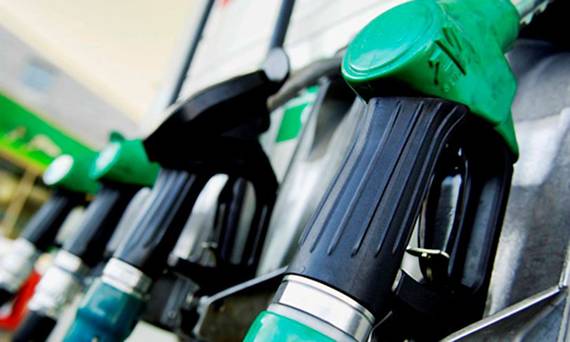Donegal is the most expensive county for filling-up a tank of petrol with an average of 128.1 cent per litre, 1.6c higher than the national average. The more expensive county for diesel is Wicklow with an average price of 116.3, 3.5c above the national average, according to the AA.
The AA has found a number of garages in the border county to be charging the highest in the Republic with rates of 131.9 cent for a litre of the fuel – 5.4 cent more than the national average.
“To be fair there are garages in Donegal and in Wicklow where cheaper prices can be found, and indeed some that are very good value.” Says Director of Consumer Affairs Conor Faughnan.
“On the whole though we did find prices in these counties to be a bit ahead of the norm. With prices falling as they are at the moment it can happen that garages that are less busy get less frequent deliveries and hence can appear slow to drop their prices. The message to drivers is to be canny about this and to shop around.”
“Border counties tend to be more expensive to fuel-up by virtue of geography,” says AA director of consumer affairs Conor Faughnan.
“It is common for motorists to cross the border in an effort to dodge the UK’s considerably higher pump prices. That coupled with its rural nature make it unsurprising that Donegal a relatively expensive county. It is certainly worth shopping around for the best deal as there is a significant difference of 7.1 cent in the same county,” says Faughnan.
Laois appeared as the second expensive county for petrol, very slightly cheaper than Donegal. Wicklow ranked in third place with the average litre reporting 127.6 cent for the fuel.
Consistent with previous media reports, Mayo and Roscommon are the cheapest counties to fill a diesel car with an average of 106.5 cent. The AA has found two service stations in respective counties to be selling the fuel for a very impressive 99.9 cent a litre.
Mayo was the cheapest for petrol as well with a local average of 122.7 cent a litre – 3.8 cent cheaper than the national average. With averages of 123.1 cent and 123.7 cent per litre, Kildare and Waterford took respective second and third cheapest counties in the country for the same fuel.
“There is quite a bit of variation and we should be careful about reading too much into it.” says Faughnan.
“Even so there are parts of the country where various factors and local competition mean that drivers are getting better value.”
The AA’s National Fuel Price Index tracks monthly national average figures with petrol now costing 126.5 cent per litre – 5.1 cent less than it was the same time last year. Diesel also dropped this month and is now averaging at 112.8 cent.
The Capital’s average litre petrol rate is in line with the national average, while diesel is trading modestly above at 115.6 cent a litre. The AA’s research indicates an evident price fluctuation where one service station retails at 128.9 cent and another 123.9 cent per litre of petrol. Similarly, diesel rates reach a high of 117.9 cent and as low as 111.9 cent a litre in some parts of the county.
While all motorists are benefitting from the fall in crude oil prices internationally pump prices are still not as low as they were the last time oil fell to these levels because of higher Irish taxes.
Fuel taxes in Ireland are charged by the litre so when the price falls the taxes do not. At the beginning of 2008 motorists would have been charged 70 cent a litre in tax. Since the emergency budget of 2008 there has been five separate tax increases adding about 20 cent to a litre of petrol and an extra 18 cent for diesel in extra austerity era taxes. The AA calculates that these extra taxes have added about €403 and €360 on motorists’ petrol and diesel bills each year.
The AA calls for the abolition of these extra austerity era taxes, as it is effectively taking money out of motorists’ pockets.
“These taxes were applied in response to the economic crisis,” adds Faughnan. The crisis has now passed, meaning these extra taxes have essentially fulfilled their initial purpose. There’s simply no reason why these taxes shouldn’t be reduced.”










